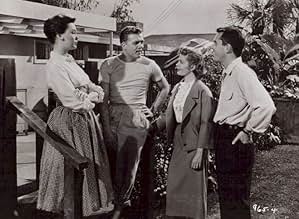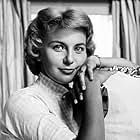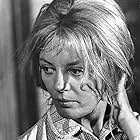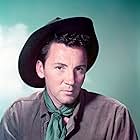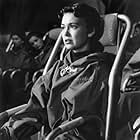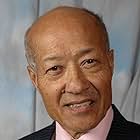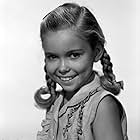IMDb RATING
7.1/10
1.3K
YOUR RATING
In California, four couples who have bought houses near one another face problems, alcoholism, racism, promiscuity, and discrimination against lack of education, until a tragic event forces ... Read allIn California, four couples who have bought houses near one another face problems, alcoholism, racism, promiscuity, and discrimination against lack of education, until a tragic event forces them to reassess their lives.In California, four couples who have bought houses near one another face problems, alcoholism, racism, promiscuity, and discrimination against lack of education, until a tragic event forces them to reassess their lives.
- Nominated for 2 BAFTA Awards
- 1 win & 2 nominations total
Robert H. Harris
- Markham
- (as Robert Harris)
Robert Burton
- Mr. Cagle
- (uncredited)
Mary Carroll
- Mrs. Burnett
- (uncredited)
George Chester
- Car Attendant
- (uncredited)
Heinie Conklin
- Church Member
- (uncredited)
Frank Gerstle
- Verdun
- (uncredited)
Mimi Gibson
- Sandra Kreitzer
- (uncredited)
Charles Herbert
- Michael Flagg
- (uncredited)
- Director
- Writers
- All cast & crew
- Production, box office & more at IMDbPro
Storyline
Did you know
- TriviaIn 1967, musician David Bowie cited this film in a letter to fan Sandra Dodd: "I was watching an old film on TV the other night called "No Down Payment" a great film, but rather depressing if it is a true reflection of The American Way of Life."
- Quotes
Jerry Flagg: I couldn't come home. I was feeling so punk.
- ConnectionsFeatured in Sex at 24 Frames Per Second (2003)
- SoundtracksThe Drive-In Rock
(uncredited)
Music by Lionel Newman
Lyrics by Carroll Coates
[The song first played and danced to at the Flaggs' dinner party, then played later when Troy rushes home after finding out about the Police Chief job]
Featured review
The performances of Pat Hingle and Barbara Rush seem very modern to me. When he washes the car while the rest of the community goes to church, she gently admonishes him for not going to church, but conveys to the audience that this has long been a point of contention between them, and that she understands his reasons - just as he understands her desire to have him attend church. However, like any intelligent wife, she doesn't go over old ground; she simply suggests a compromise. She negotiates with him quickly and easily by suggesting that he wash the car after church from now on. He easily agrees, and the matter is settled. In at least three other scenes,they're shown disagreeing about various issues - however, they do it calmly and maturely, and with a healthy dose of humor.
One scene explains, with charm, that they are simpatico in the bedroom, too. She doesn't make him bust his chops wooing her, and she doesn't pretend that she isn't interested, like good little 1950's girls were supposed to do,
Most moving is a scene in which they have their worst disagreement, and both actors effectively evoke their unhappiness about not being on the same page. One senses that this couple is very close, and that they derive strength from their partnership. After this worst disagreement, they attend a party at which Pat Hingle approaches his wife in a tender way, and asks her to dance. She agrees immediately, and in the following scenes, we see them dancing happily, and exchanging reassuring looks.
I think this couple's marriage depicts a healthy relationship. They're always ready to calmly discuss things, to hear each other out, and be fair. Their goal in any discussion seems to be reaching a fair agreement, and getting back to being good friends, as well as lovers.
In my opinion, Pat Hingle helms this movie. The other characters seem dated. For example, Hingle is the only one who jumps up to call the police after a crime has been committed; Hingle is the only one who is sensibly, not insanely, ambitious; Hingle is the only one who doesn't seem interested in other women; Hingle is the only one who considers his wife a partner, and values her opinion; Hingle is the one who is physically affectionate with his children; and most importantly, Hingle is the one who raises questions about racism and intellectual bigotry. And thanks to the script, he isn't a crusader. He is a man who is open-minded enough to contemplate these issues as they are presented to him, and to question the passive bigotry that he comes to realize has been ingrained in him by his family and country.
Hingle and Rush's characters ring true, and are beautifully portrayed by the actors. The other characters are broadly-drawn, one dimensional, and have not aged well.
One scene explains, with charm, that they are simpatico in the bedroom, too. She doesn't make him bust his chops wooing her, and she doesn't pretend that she isn't interested, like good little 1950's girls were supposed to do,
Most moving is a scene in which they have their worst disagreement, and both actors effectively evoke their unhappiness about not being on the same page. One senses that this couple is very close, and that they derive strength from their partnership. After this worst disagreement, they attend a party at which Pat Hingle approaches his wife in a tender way, and asks her to dance. She agrees immediately, and in the following scenes, we see them dancing happily, and exchanging reassuring looks.
I think this couple's marriage depicts a healthy relationship. They're always ready to calmly discuss things, to hear each other out, and be fair. Their goal in any discussion seems to be reaching a fair agreement, and getting back to being good friends, as well as lovers.
In my opinion, Pat Hingle helms this movie. The other characters seem dated. For example, Hingle is the only one who jumps up to call the police after a crime has been committed; Hingle is the only one who is sensibly, not insanely, ambitious; Hingle is the only one who doesn't seem interested in other women; Hingle is the only one who considers his wife a partner, and values her opinion; Hingle is the one who is physically affectionate with his children; and most importantly, Hingle is the one who raises questions about racism and intellectual bigotry. And thanks to the script, he isn't a crusader. He is a man who is open-minded enough to contemplate these issues as they are presented to him, and to question the passive bigotry that he comes to realize has been ingrained in him by his family and country.
Hingle and Rush's characters ring true, and are beautifully portrayed by the actors. The other characters are broadly-drawn, one dimensional, and have not aged well.
- How long is No Down Payment?Powered by Alexa
Details
- Release date
- Country of origin
- Language
- Also known as
- Fenster ohne Vorhang
- Filming locations
- 15281 W. Sunset Blvd., Pacific Palisades, Los Angeles, California, USA(Troy Boone's Mobil gas station)
- Production companies
- See more company credits at IMDbPro
Box office
- Budget
- $995,000 (estimated)
- Runtime1 hour 45 minutes
- Color
- Aspect ratio
- 2.35 : 1
Contribute to this page
Suggest an edit or add missing content






